Published
7 months agoon
By
Desert Man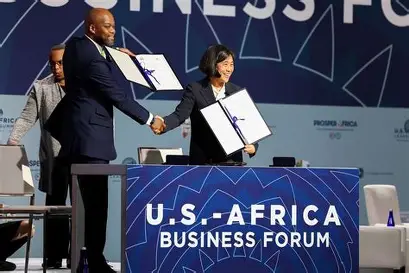
The 17th U.S.-Africa Business Summit, held from June 22 to 25, 2025, in Luanda, Angola, concluded with an unprecedented $2.5 billion worth of trade and investment deals, reinforcing a shift in U.S. engagement with Africa from aid to trade.
Hosted by the Corporate Council on Africa and the President of Angola, the summit brought together more than 2,700 public and private sector leaders from the United States and across the African continent, including 12 African Heads of State.
The historic turnout underscored a mutual commitment to deepen commercial ties between the two sides. Ambassador Troy Fitrell, Senior Bureau Official for African Affairs, led the U.S. delegation, which comprised top officials from key American trade and development agencies.
Among them were Massad Boulos, Senior Advisor for Africa; Thomas Hardy, Acting Director of the U.S. Trade and Development Agency; Constance Hamilton, Assistant U.S. Trade Representative for Africa; Connor Coleman, Head of Investments and Chief of Staff at the U.S. International Development Finance Corporation; and Tamara Maxwell, Senior Vice President for Small Business at the Export-Import Bank of the United States.
The U.S. government’s objective was to facilitate commercially meaningful outcomes for U.S. firms and foster a conducive environment for American exports and investment in Africa.
This approach aligns with the Trump Administration’s Commercial Diplomacy Strategy for Africa, which prioritizes economic partnerships as a route to mutual prosperity.
Among the headline deals signed was a Strategic Partnership Agreement between Florida-based Amer-Con Corporation and the Angolan Cargo and Logistics Certification Regulatory Agency.
The project, backed by the U.S. Export-Import Bank, involves the construction and operation of 22 grain silo terminals along Angola’s Lobito Corridor to enhance food security and agricultural logistics.
In the technology sector, Cy bastion, a U.S. tech firm, partnered with Angola Telecom in a $170 million initiative to expand digital infrastructure and cybersecurity. The deal, part of Cybastion’s “Digital Fast Track” programme, includes local training and modern digital infrastructure.
Energy was a key focus of the summit as CEC Africa Sierra Leone Ltd. entered into a memorandum of understanding with AG&P to develop West Africa’s first U.S.-sourced Liquefied Natural Gas (LNG) terminal.
Supported by the U.S. International Development Finance Corporation, the project will power Sierra Leone’s 108MW Nant Power Project, providing energy for industrial and domestic use.
A major regional energy agreement was signed between the Ruzizi III Holding Power Company and U.S.-based Anzana Electric Group.
Anzana will acquire a 10% equity stake in a $760 million hydropower project straddling Rwanda and the Democratic Republic of Congo (DRC), expected to deliver reliable electricity to 30 million people and boost regional integration.
In Ethiopia, Ethiopia Investment Holdings signed a memorandum of understanding with U.S. International Finance Partners to channel over $200 million into the country’s tourism infrastructure, including luxury hotels and branded residences.The agreement was signed in the presence of Ethiopian President Taye Atske Selassie.
Another landmark agreement was signed between U.S. energy investor Hydro-Link and the Angolan Government for a $1.5 billion transmission project. The deal will see the development of a 1,150-kilometre private transmission line linking Angola’s hydro plants, such as the Luaca dam, to mineral-rich regions in the DRC, enabling the delivery of up to 1.2 gigawatts of electricity to mining operations in Kolwezi.Organizers said the summit’s success reflects a growing appetite for pragmatic, investment-led partnerships across the continent and a new model of U.S.-Africa relations grounded in shared goals.With record participation and billions of dollars in signed deals, the 2025 U.S.-Africa Business Summit marked a turning point in strengthening bilateral commercial ties and catalyzing infrastructure, energy, and digital development in Africa. The summit reaffirmed the United States’ evolving role as a trade partner willing to support Africa’s development priorities while promoting American enterprise and competitiveness on the continent.



AMA Clears Illegal Structures Ahead of Accra Decongestion Exercise


NDC’s Wonder Kutor Defends Fuel Price Floor Amid Deregulation Calls


Soap-Washed Fruits in Local Markets Raise Food Safety Alarm
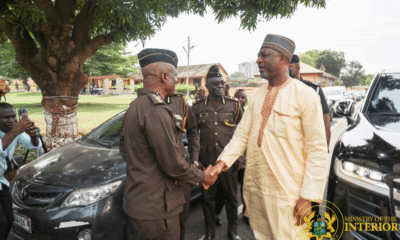

Interior Minister Assures Fair Recruitment at Prisons Service Screening in Accra
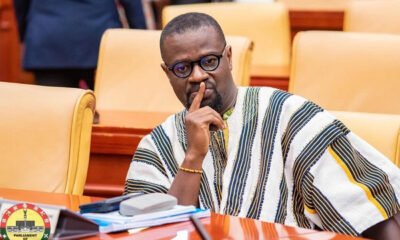

Annoh-Dompreh Backs Bawumia as NPP’s Most Electable Leader for 2028


Accra Mayor Orders Crackdown on Illegal Roadblocks to Ease Traffic


Bawumia Campaign Slams Kennedy Agyapong Over ‘False’ Allegations
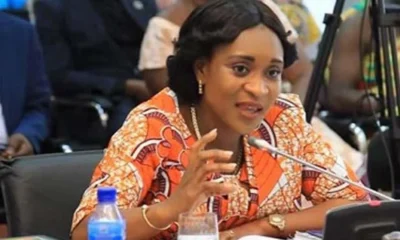

Abena Osei Asare Defends Ofori-Atta, Cites Strong Pre-COVID Economic Performance
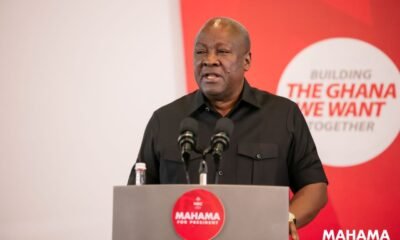

Mahama to Lead First Accra Reset Davos Convening at World Economic Forum

























